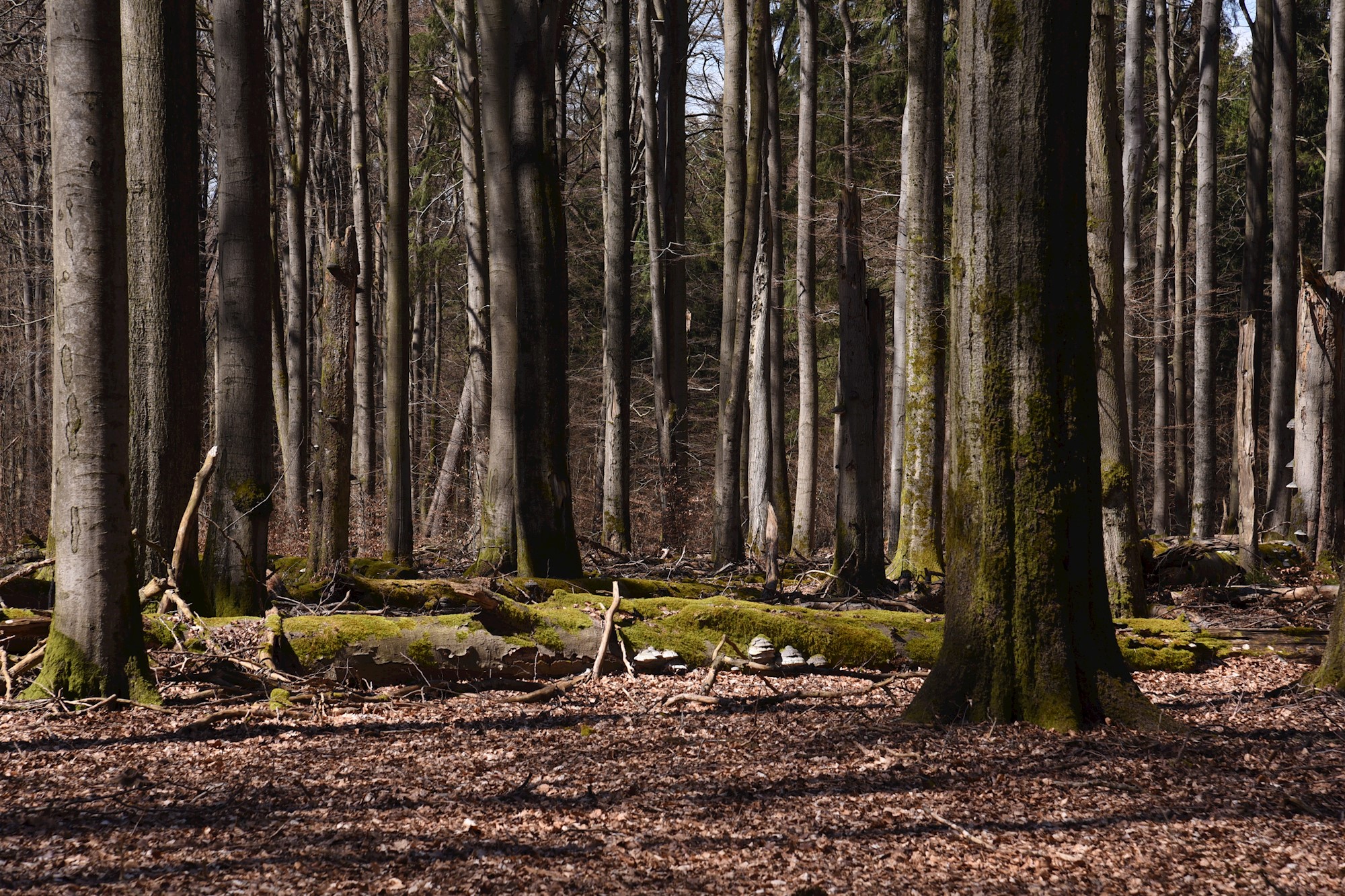WILDCARD (EVINBO)

(photo INBO)
Details
Meeting the targets of the Paris Climate Agreement and the European Green Deal will require reducing net greenhouse gas emissions to zero by 2050. Besides reduced emissions, active CO2 sequestration which at the same time ensures biodiversity conservation, will also be needed,WILDCARD will assess, for the first time in Europe, the potential impact of both natural afforestation of abandoned agricultural land and of set-aside strategies in existing forests on in situ carbon sequestration and biodiversity at multiple spatial and temporal scales.
-------
Europe aims to significantly reduce net greenhouse gas emissions by 2030 and even become completely climate neutral by 2050. This is crucial if we want to limit global warming to 1.5°C and achieve the goals of the Paris Climate Agreement. Major efforts are planned to reduce emissions, but it is also expected that part of the carbon emissions can be offset by storing more carbon in agriculture, forests and nature.
One option is to leave more areas to nature. These developments towards more spontaneous nature are also called 'rewilding'. The EU also wants to be able to estimate the contribution of these 'rewilding' processes in a substantiated manner. That is why the Horizon Europe Research Program launched a call with the theme “Let nature help do the job: Rewilding landscapes for carbon sequestration, climate adaptation and biodiversity.”
WILDCARD is one of the research projects funded within this program and will focus on two rewilding processes with an important impact on the carbon balance, namely spontaneous afforestation of agricultural lands and set-aside of managed forests.
Many remote agricultural lands in Europe are being abandoned and spontaneously reforested, storing carbon. Over the last 30 years, the forest area in Europe has increased by 10% and this trend will continue in the coming decades. At the same time, more and more managed forests are actively set aside and protected in reserves and national parks. The subsequent spontaneous development towards a more natural forest also ensures carbon storage. It is expected that this area will also increase significantly. The EU wants to encourage member states to place more land, and therefore also forests, under 'strict protection'.
For the first time in Europe, the potential impact of these processes on the carbon balance will be calculated as a 'nature-based solution' within the WILDCARD project. But the impact on biodiversity and the local social context is also examined.
WILDCARD is a consortium of 16 research institutions, of which INBO is one of the larger partners. In WILDCARD we will use extensive measurements throughout Europe to specifically determine how much carbon is effectively stored in these spontaneous processes, but also what the effects are on local biodiversity. We do this both in spontaneously reforested former agricultural lands and in forests that have been taken out of management in recent decades. Classical field measurements and sampling are combined with new techniques such as LiDAR and eDNA. Modelers then work with these figures and calculate what this means for the whole of Europe, but also what the future may bring under various climate and land use scenarios.
Other partners will look at the socio-economic aspects of this evolution. What is the local population's attitude towards these new developments? Not only will the landscape and local economy change significantly, these spontaneous processes will also bring back species (such as beavers, bears and wolves) that can have an important impact on their crops and livestock. And in the Mediterranean countries, the risk of forest fires and wildfire is also a very important issue. We try to portray this clearly through targeted case studies and active interaction through surveys and the establishment of a 'rewilding forum'.
The final results of this research will be disseminated through scientific publications, but also translated into a series of concrete and realistic recommendations for policymakers and communication to the general public (including a podcast series) to achieve a better understanding of the possibilities and limitations of ' rewilding' in Europe to achieve global climate goals.
Specific tasks of INBO in the project include:
- Providing field measurements of above-ground carbon stocks and fluxes in unmanaged forests, and reference values for the average forest (based on the Flemish Forest Inventory)
- Co-ordinate and manage a Europe-wide sampling campaign to determine forest floor and belowground carbon stocks in unmanaged forests.
- During this fieldwork campaign, eDNA samples are simultaneously taken from the forest floor and soil to determine the biodiversity of soil life (from bacteria to woodlice)
- The INBO soil laboratory will be responsible for all soil analyzes from this subtask and the processing of the soil carbon data will also be done by INBO
- Through its networks of end users (including the Forest Research User Platform), INBO will also contribute to research into 'social acceptance' of spontaneous forest development and conflicts related to increased wildlife damage and predation due to rewilding.
The project is funded by the European Union's Horizon Europe program under grant agreement No. 101081177. It is coordinated by de University of Udine in Italy and implemented by the following partners:
- Technical University of Munich (Germany)
- European Forest Institute (Finland)
- Vrije Universiteit Amsterdam (Netherlands)
- Institute of Biodiversity and Ecosystem Research at the Bulgarian Academy of Sciences (Bulgaria)
- Research Institute for Nature and Forest (INBO)
- Ștefan cel Mare University of Suceava (Romania)
- Silva Tarouca Research Institute for Landscape and Ornamental Horticulture (Czech Republic)
- Forest Research Institute Baden-Württemberg (Germany)
- Prospex Institute (Belgium)
- Wageningen University & Research (Netherlands)
- Northwest German Forest Research Institute (Germany)
- University of Turin (Italy)
- University of Padua (Italy)
- University of South Bohemia in České Budějovice (Czech Republic)
- ETH Zürich (Switzerland)
| Status | Running |
|---|---|
| Actual start/end date | 01/02/2024 - 31/01/2028 |
Teams
INBO Research theme(s)
- Soil & air
- Forest
- Climate
Tags
- forestry
- soil
- management
- eDNA
- biodiversity
- soil
- biodiversity
